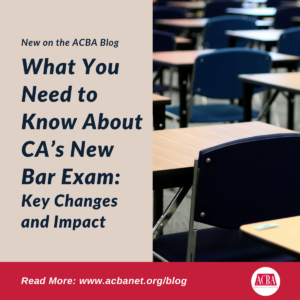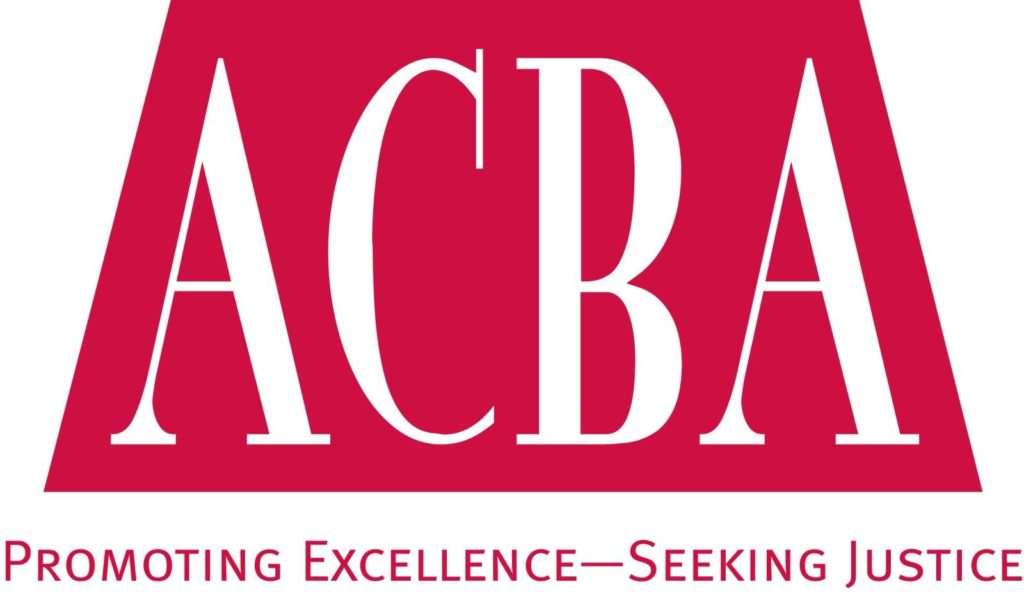 The California State Bar recently announced a significant shift in the development and administration of the California Bar Exam. A new five-year, $8.25 million contract with Kaplan Exam Services, LLC was signed on August 9, 2024. The change introduces a range of updates aimed at streamlining the exam process, cutting costs, and meeting the preferences of bar applicants.
The California State Bar recently announced a significant shift in the development and administration of the California Bar Exam. A new five-year, $8.25 million contract with Kaplan Exam Services, LLC was signed on August 9, 2024. The change introduces a range of updates aimed at streamlining the exam process, cutting costs, and meeting the preferences of bar applicants.
Key Changes to the California Bar Exam
- Transition Away from the MBE: Starting in 2025, California will no longer use the National Conference of Bar Examiners’ (NCBE) Multistate Bar Examination (MBE) for its multiple-choice component. Instead, Kaplan will develop new multiple-choice questions specific to California.
- New Exam Format and Content: Kaplan will also design essay questions and performance test components tailored for California. These changes aim to better reflect the specific legal knowledge required for practice within the state.
- Remote and Test Center-Based Administration: The exam will now be offered both remotely and in physical test centers, addressing feedback from applicants who prefer more flexible testing options. This update represents a significant modernization compared to the NCBE’s more rigid test administration rules.
- Free Study Guides and Resources: As part of the agreement, Kaplan will provide study guides for both faculty and students, which the State Bar will distribute at no additional cost. However, Kaplan will exit the California-specific retail bar prep business, focusing instead on exam development.
Impact on Attorneys and Bar Takers
The shift in exam development brings both advantages and potential challenges for future bar takers and legal professionals:
Pros:
- Flexibility in Exam Format: The introduction of remote and in-person test options caters to different learning styles and preferences, which may reduce exam-related stress and enhance accessibility.
- California-Specific Content: With Kaplan developing state-focused questions, the exam may become more relevant to the actual practice of law in California.
- Cost Savings and Financial Stability: The State Bar anticipates saving up to $3.8 million annually in exam-related expenses, helping to close a projected funding gap that could lead to insolvency by 2026. These savings are essential for maintaining the viability of the exam system without raising costs for test takers.
Cons:
- Adaptation to New Materials: Law schools and bar prep companies will need time to adjust to the new question formats and content. Applicants may face a learning curve as they transition from familiar NCBE materials to Kaplan’s new exam structure.
- Potential Legal Risks: The agreement includes safeguards against intellectual property and copyright infringement, but potential litigation could arise. While cost-sharing provisions and caps have been put in place, there’s a risk that any legal disputes could divert resources and focus away from other critical Bar initiatives.
Long-Term Outlook
With any major change, there are uncertainties. As the first cohort of applicants under this new system prepares for the 2025 exam, their experiences will likely shape ongoing adjustments and fine-tuning of the process.
For attorneys and law students planning to take the California Bar Exam in the coming years, staying informed and adapting study strategies to align with these new materials will be crucial! Law schools and bar prep programs will need to update their offerings to reflect the new format, while legal professionals may see shifts in the readiness of new entrants to the profession. We’ll be keeping an eye on the roll out, check our blog for updates!
